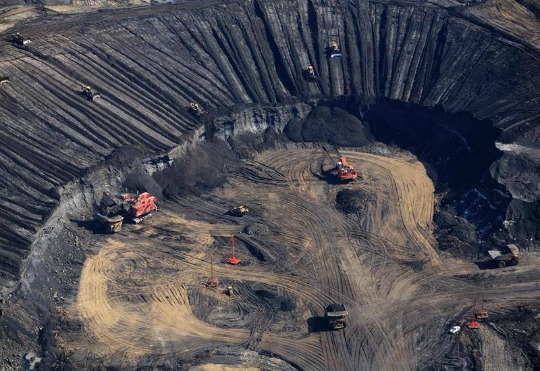Fuel Fix
http://fuelfix.com/blog/2014/05/08/offshore-regulators-to-keep-eye-on-bad-actors/?utm_source=twitterfeed&utm_medium=twitter
Posted on May 8, 2014 at 6:29 pm by Jennifer A. Dlouhy
HOUSTON – Maritime and drilling regulators vowed Thursday to keep a closer watch on oil companies and contractors they say are consistently cutting corners on safety offshore.
The Coast Guard’s assistant commandant for prevention policy, Rear Adm. Joseph Servidio, and Brian Salerno, director of the Bureau of Safety and Environmental Enforcement, delivered that message directly to oil industry representatives on the final day of the Offshore Technology Conference.
Servidio said the Coast Guard will consider launching unannounced inspections of oil and gas industry vessels after some logged more than five deficiencies during scheduled probes.
“There are significant areas of concern, and we have a ways to go with some vessels and some companies,” Servidio said.
While acknowledging some offshore supply vessels and mobile offshore drilling units have come through examinations without problems, and still others have worked to improve their performance, Servidio said some still are falling short. “There are other companies where we find the same problems over and over again,” he said.
The Coast Guard already conducts unannounced inspections of some cruise ships – and that same model could be applied to oil industry vessels with bad track records.
“We will be looking at expanding oversight on those vessels and those companies that have demonstrated significantly above average trends and deficiencies, and we will take appropriate control and enforcement actions where needed,” Servidio said. “We’re looking at the potential for instituting no-notice exams for the small population of vessels whose performance and commitment to safety may be in question.”
Salerno said the safety bureau he heads, which regulates offshore drilling, also sees evidence of spotty performance, with a few repeat offenders mingled among companies with deep commitments to the safety and environmental management systems now required to minimize process risks offshore.
“There are companies we have encountered that think they can cut corners or regard SEMS as just a plan on a shelf,” Salerno said. “In some tragic cases, lives have been lost – needlessly – for failure to follow established safety processes.”
A spate of recent accidents have highlighted the risks of offshore oil and gas development – even in shallow waters close to shore.
In its probe of a fatal Gulf of Mexico oil platform blast that killed three workers in November 2012, the safety bureau blamed Houston-based Black Elk Energy and its contractors for failing to make sure areas were cleared of explosive gas before welding.
The agency also is investigating what caused a welder to fall to his death while dismantling an Energy Resource Technology platform in the Gulf last October.
Salerno did not name names, but he said his view about bad actors offshore “was formed as a result of actual events.”
“Incidents occur and we investigate them,” he said. “We look at the reasons why they have occurred, and in many cases, you can point to a failure to follow pretty well-established safety principles. A lot of what we have seen in the incidents is very, very preventable, and when you read the reports, you say, ‘how can that have happened?'”
Salerno, who has spent nine months leading the safety bureau, said he wants the agency to focus its attention on the riskiest operations and the most problem-prone companies.
That risk-based approach wouldn’t mean companies with good track records would escape inspections altogether, Salerno said, but data could be used to justify spending less time on some operators with proven performance and more time on those “where there are clear problems.”
The safety bureau has asked a national laboratory to help it develop a robust risk methodology.
The agency is also looking to step up its technological know how – and keep updating its regulations – as the oil and gas industry sets its sight on reservoirs with bone-crushing pressures and 350-degree temperatures miles below the sea floor.
That’s a big challenge, Salerno admitted.
The industry “sets a very aggressive pace,” Salerno said.
“Regulations have always had a tough time keeping up with technological change; for that matter, industry standards are having a tough time keeping up as well,” Salerno said. “And that has become even more of a problem as the pace of technological innovation and change has accelerated.”
Charlie Williams, Brian Salerno and Coast Guard Rear Adm. Joseph Servidio discuss safety during an OTC panel Thursday.
Special thanks to Richard Charter.
